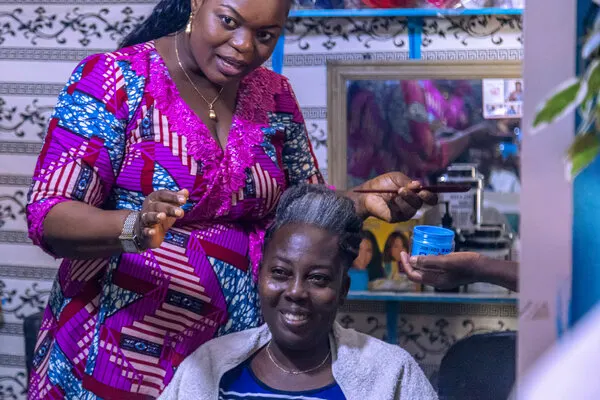In West Africa, a severe shortage of mental health services has prompted an innovative solution: training hairdressers to act as frontline mental health supporters.

October 5, 2025

Source:
The New York Times
A New Frontline in Mental Health Care
In West African nations like Cameroon, Ivory Coast, and Togo, a quiet revolution in mental health support is taking place in an unlikely setting: the hair salon. With a severe shortage of professional therapists, community members are stepping up to fill a critical gap.
Programs are training hairdressers to become frontline mental health ambassadors, offering a listening ear and crucial support to their clients. This initiative directly confronts a stark reality. Togo, a nation of over eight million people, has only five registered psychiatrists, as highlighted in reports from MIT Solve. The high cost and stigma associated with therapy leave most people with nowhere to turn.
The Bluemind Foundation's Heal by Hair program is at the forefront of this movement, empowering stylists to become the first link in a chain of care.
Keep up with the story. Subscribe to the PR+ free daily newsletter

Source:
The Guardian
Salons as Community Sanctuaries
Hair salons in West Africa are more than just places for styling; they are vital social hubs where people, particularly women, share their lives in a trusted and confidential environment. This unique setting makes them ideal for providing discreet mental health support.
How the Training Works
Hairdressers are not being trained to be therapists. Instead, they receive short, culturally-aware courses based on World Health Organization guidelines. The training focuses on:
Active Listening: Learning how to listen compassionately without judgment.
Distress Recognition: Identifying signs of common mental health challenges like depression and anxiety.
Referral Pathways: Guiding clients toward professional help when possible.
As hairdresser Adjoua Catherine Tano noted in a report by Le Monde, stylists have long been informal confidantes. This program formalizes that role, giving them the basic tools to help effectively and safely.
Read More

Source:
The New York Times
Share this news:




















